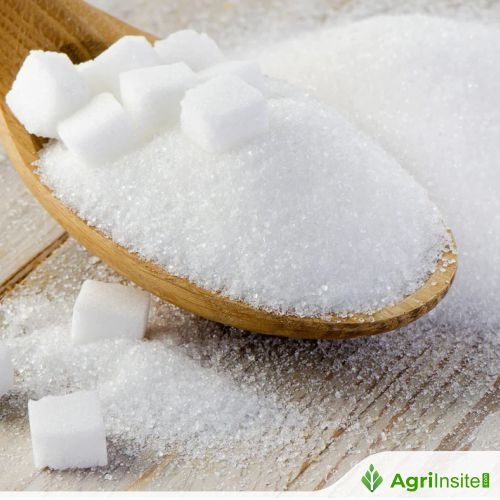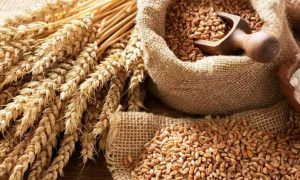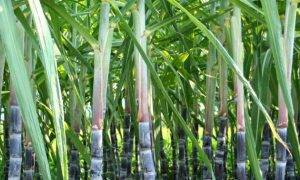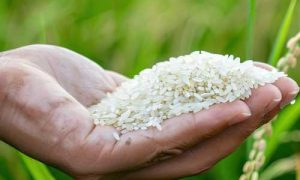Nigeria : Experts call for new intensive sugar masterplan

Nigeria’s sugar market is set for major growth, projected to exceed $2.5 billion by 2030. Challenges include climate change, low yields, and infrastructure gaps. Experts urge policy reforms, investment in sugarcane breeding, and enhanced security for farmers. With increased production, Nigeria could become a sugar export hub, reducing imports and boosting economic self-sufficiency.
Experts have called for enhanced initiatives to increase sugar production in order to meet the rising demand. In Nigeria, sugarcane consumption has historically experienced growth, averaging an increase of 1.7 percent annually since 2017.
The Nigerian sugar market is anticipated to undergo substantial expansion in the forthcoming years, propelled by robust domestic demand, heightened investment, and supportive government policies. Projections indicate that the market could exceed $2.5 billion by 2030, with a compound annual growth rate (CAGR) of 5.37 per cent.
However, the sector currently faces obstacles in boosting domestic production, primarily due to the effects of climate change on sugarcane yields and production, as well as insufficient infrastructure, including transportation and storage facilities, which may impede industry growth. Nigerian sugarcane farmers have experienced low yields attributed to factors such as suboptimal farming practices, limited access to quality inputs, and inadequate infrastructure. Furthermore, Nigeria’s sugar processing capacity is constrained, limiting the nation’s ability to satisfy the increasing demand for refined sugar.
In light of these challenges, experts have urged the government and industry stakeholders to collaborate on enhancing sugarcane productivity, broadening processing capacity, and creating a more favorable landscape for local sugar producers. They recommend that operators explore the production of value-added sugar products, including refined sugar, brown sugar, and sugar substitutes. With a rise in production levels, experts contend that Nigeria could become a significant exporter of sugar to its neighboring countries.
The President, Association of Small business Owners of Nigeria(ASBON), Dr Femi Egbesola noted that the current National Sugar Master Plan have yielded little result.
His words: “ Production of sugar in Nigeria is yet to meet domestic demand thereby creating a huge supply gap that is met through import. For self-sufficiency in sugar production, government must put up a new Sugar Master Plan that must address and resolve the challenges mitigating against its growth.”
He noted that there were challenges confronting the sector including lack of adequate local raw materials for sugar production, environmental constraints, lack of quality seed cane and suitable varieties, poor irrigation, lack of farm mechanization, insecurity and poor capital.
He continued: “To improve sugarcane productivity, the cane industry should be restructured to improve efficiency and yields. Measures should also be put in place to promote the establishment of cane mills around the sugar estates and across the sugarcane producing areas. Capacity building and intervention programs should be made available to processors and actors in the Sugar production value chain too.”
In his contribution, the Provost, College of Agricultural Sciences and Renewable Natural Resources, Ladoke Akintola University Ogbomoso,Iseyin –Campus, Iseyin, Oyo State, Prof. Abel Ogunwale, indicated that as the Nigerian Sugar Master Plan [NSMP] is ending this year, efforts must be invested to increase cultivation in the face of insecurity in the farmland and use of sugar cane for ethanol production.
According to him, NSMP was part of a number of policy measures and a regime of fiscal and investment incentives designed primarily to provide a conducive to raise local production of Sugar to attain self-sufficiency, stem the tide of unbridled importation, create huge number of job opportunities, and contribute to the production of ethanol and generation of electricity.
He posited: “To increase the cultivation of sugar in the face of insecurity in the farmlands and its use for ethanol production there is urgent need by all the stakeholders including the Government at Federal and state levels to support improved sugar cane breeding research. The National Cereal Research Institute [NCRI], Bida, Niger State and University of Ilorin Sugar Research Institute, Ilorin, Kwara State should be supported to embark on breeding research to come up with early maturing varieties across different ecological zones, and release new varieties of sugar cane for commercial cultivation.
The government should encourage the organized Private Sector to intensify sugar cane cultivation and its usage for ethanol production. Presently, there is a need to improve security architecture sugar cane producing communities in the North-west, North-east and North –central where banditry and insurgency have forced Sugar cane farmers out of their farmlands. We have intensify training programmes for sugar cane farmers and researchers in sugar sector.The demand for training in appropriate scientific disciplines is a major impediment in the area of sugar cane research development in Nigeria, leading to its low contribution to the development of the sugar sector. The government needs to provide appropriate training for the researchers and farmers to up-scale their research output and production capacities of farmers to increase local sugar production in Nigeria.”
He called for specialised financial assistance for local commercial production of sugar cane in areas such as Sokoto, Nasarawa, Benue, Kano, Jigawa , Kebbi and other states involved in production.
Last month, the Executive Secretary , National Sugar Development Council (NSDC) of Nigeria, Mr Kamar Bakrin stated that Nigeria requires $5 billion investment in the sugar sector to achieve self-sufficiency.
He indicated that Nigeria’s annual sugar production stands at 48,000 metric tonnes, while the consumption rate is about 1.8 million metric tonnes, leading to a deficit of approximately 1.75 million metric tonnes.
Bakrin criticised the proposal for a sugar tax, asserting that Nigeria does not have a problem with excessive sugar consumption, as the average per capita consumption is merely 9 kg per year, notwithstanding the country’s large population.
Speaking at a media session in Lagos, he highlighted that the local sugar market is valued at $2 billion and is still in a growth phase, necessitating a $5 billion investment for expansion.
He remarked that Brazil stands as the foremost sugar producer in the world, generating 41 million metric tonnes, followed by India and Thailand with 36 million and 14 million metric tonnes, respectively. In Africa ,he noted that Egypt is the leading producer with 2.8 million metric tonnes, trailed by South Africa and Eswatini, which produce 2.4 million and 0.78 million metric tonnes, respectively.
In terms of exports,he indicated Brazil dominates with 29.2 million metric tonness, while Thailand and India follow with 8.2 million and 7 million metric tonnes, respectively.
Within Africa, he continued that South Africa leads in exports with 0.7 million metric tonnes, followed closely by Mauritius and Eswatini, each at 0.6 million metric tons.
The United States Department of Agriculture (USDA) ‘s Foreign Agricultural Service (FAS) has indicated that the rising demand for refined sugar in West Africa and other Sub-Saharan African nations is anticipated to result in a 6 percent increase in refined sugar exports for the marketing year (MY) 2024/25.
Conversely, FAS projects a 6.0 per cent decline in raw sugar imports during the same period, attributed to limited foreign exchange availability and a forecasted reduction in consumption.
Additionally, domestic cane production is expected to rise by approximately 7 percent in MY 2024/25, reaching 80,000 metric tonnes (MT), driven by ongoing investments in production.
Knowledge Sourcing Intelligence LLP, a research firm forecasted that Nigeria’s sugar market is expected to exceed $2.5 billion by 2030, growing at a compound annual growth rate (CAGR) of 5.37 per cent from $1.9 billion last year . The report highlights sugar’s extensive use in the food and beverage industry as a preservative, flavoring and coloring agent, and sweetener. It also noted that Nigeria is experiencing rapid urbanisation and advancements in food processing, which have increased the consumption of food and beverage products, thereby enhancing sugar consumption.
To read more about Sugar Industry continue reading Agriinsite.com
Source : The Nation














